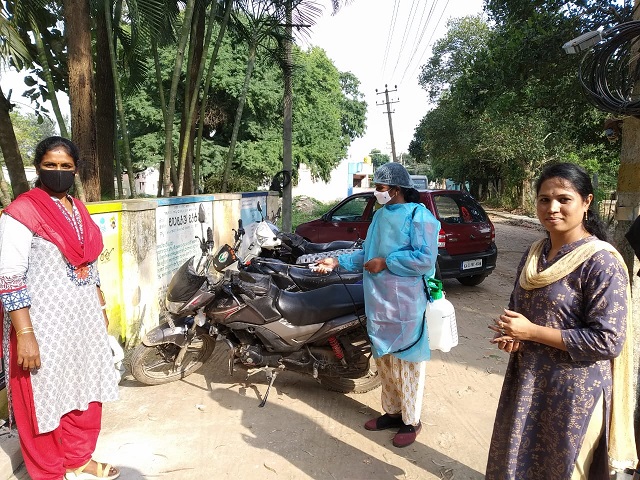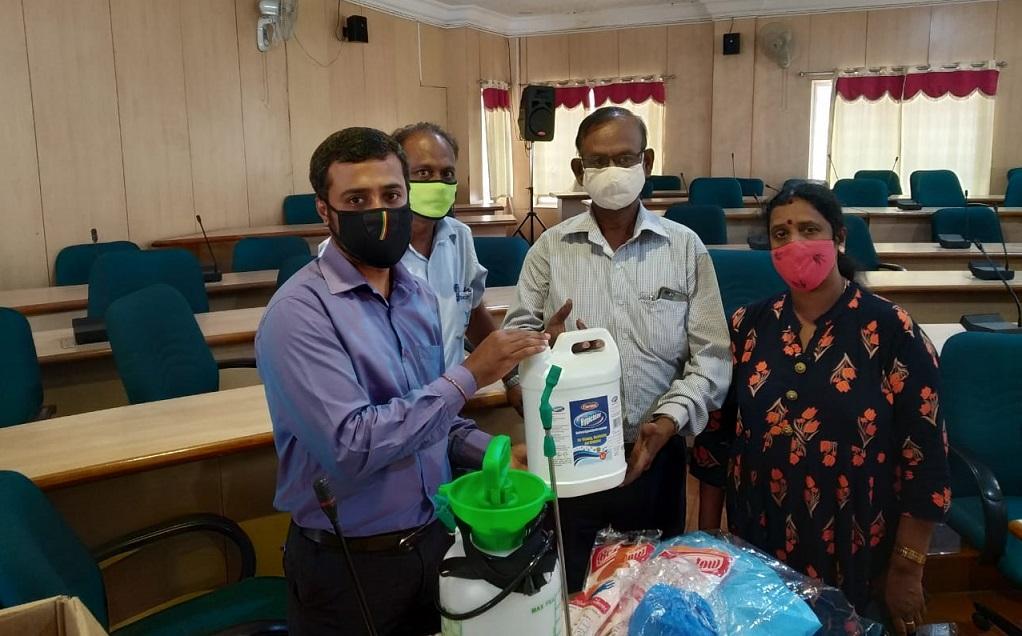Addressing skills shortages through hybrid, targeted learning initiatives
LabourNet is an Indian social enterprise that focuses on formalising informal labour. The organization improves the socioeconomic status of workers and looks at how skilling, reskilling, or upskilling can improve people’s chances of remaining relevant in the labour market. The company has certified about 700,000 people since 2012. In this interview, founder Gayathri Vasuvedan explains how the right pricing structure helped LabourNet to build a profitable and people focused business.
What were the main challenges to your education model that arose as a result of the pandemic?
The main disruption to our skilling model was the way learning in the industry traditionally happened in the space – through physical centers across the country. Education systems across learner groups were racing to make it digital.
Did you adopt any new tools or formats for learning as a result of Covid-19?
The Shiksha Platform, LabourNet's hybrid learning platform, is LabourNet's way of making a crisis work in response to the pandemic, which saw suspension of our physical centres across the country. It was launched within a period of one month as a Learning Management System (LMS) for self-learning. Within six months it has now evolved into a complete suite of hybrid learning. Shiksha today supports face-to-face virtual sessions akin to a smart class, self-learning management with assessments capability, as well as social learning features like online discussion spaces. The platform has robust user experience features for guiding behavior and telemetry features for close tracking of multi-dimensional learning.
The Shiksha platform is being used in both our centre-based models for traditional trades, adding richer dimensions to existing modes of skilling, as well as in our complete online skilling models for future IT skills. It is designed for easy integration of any new course and availability of new telemetry for new partners. The platform today has 33,000+ active users including students, trainers and other stakeholders, across trades. We think the promise of online education lies mostly in the skilling segment – given access to devices as well as the immediate stakes for learners.
How are you addressing issues of connectivity and digital inclusion now that most training has been shifted to online learning?
Even as we are straddling the potential of online education, the low resource settings we work with guide our operations strategy. An example is our blended approach for one of our skilling projects on “Future Workforce” where we work with youth in Tier-2 & 3 towns across Odisha, Delhi NCR & Maharashtra to enable them with future tech skills. We are emulating social and peer learning through technology and our ground teams use behavior nudges to guide students through completion. Weekly call-in strategies and automated customized messages are all being incorporated as part of training delivery.
Continuity of engagement with the informal sector cadre/skilling space is a major challenge in tracking long term skill building, problem solving and guided upskilling. This inhibits longer term human capital building for the sector. There's potential to modulate these use cases for deployment for sourcing, guided learning as well as post programme/placement engagement and tracking with the informal sector cadre.
Have you developed any new or innovative training programmes or discovered new training opportunities during Covid times?
The new training opportunities during the Covid times emerged from the new service and product needs of the times. For example, we ramped up the last mile product delivery capacity of Wildcraft for masks as the demand for them shot up by sourcing and training the right candidates across the country.
The essence of collaborating across organizational boundaries emerged as a Covid response in the social enterprise space. Harnessing the power of social and community network as well as cross-organizational collaboration we were able to lead relief and migration support efforts. One such collaboration led us to launch a new micro-entrepreneurship programme – the Sanitization & Hygiene Entrepreneurship. We connected job losses to the immediate need for sanitization services as a healthcare response to break the chain of Covid.
Did you identify skills shortages in key sectors caused by the Covid-19 pandemic?
Healthcare and logistics are key sector that saw skills shortages both in terms of human power as well as skills needed for adaptation to lockdown and pandemic demands. Within healthcare, we have been able to turnaround the requirement of phlebotomist as a skill, which has been on the rise given immediate demand for scaling testing abilities and now for vaccination abilities. Moreover, for skills like these, working with industry leaders to collaboratively design learning & assessment has been an imperative for us.
The other kind of skill required in healthcare is a hospital services coordinator to coordinate with the public during the pandemic. One of the biggest challenges during a public health crisis is the panic that sets in due to information asymmetry in public communication. Based on real stakeholder mapping of patients across Bangalore, helpdesks were designed with trained coordinators across six major hospitals in the city for end-to-end information management right from guidance to patients, walk-ins from villages, to admissions and information to family of admitted patients. In a unique public-private partnership model, the processes were integrated into the communication systems of BBMP (the municipal administrative body in Bangalore) right from the start, including hospital transfers. The coordinated movement has supported 1000+ customers till now.
On the hygiene aspect of healthcare, we launched the Sanitization & Hygiene Entrepreneurship, which has enabled 600+ micro-entrepreneurs to date to reach cumulative earnings of INR 90 Lakhs (104,000 Euros) and sanitize more than 50 million square feet of public and private spaces.
Consumption of home delivery of products and services has been ramped up since the pandemic. So that is another opportunity for the need for skilled professionals.

© LabourNet
If so, how did you adapt your model to address these skills shortages and reskill/upskill the unemployed or underemployed?
A key to adapting to new opportunities for livelihoods models is a sense of urgency and a need for collaborated approaches along with industry so that the gap of nuances of skills requirement and employability are minimized. A case in point is the Sanitization & Hygiene Entrepreneurship that we were able to launch by June 2020. Institutionalizing this sense of urgency within our operation systems through technology based tracking and internal capacity building of on-ground teams has been a key evolution within our organization.
How has the Covid-19 pandemic led you to re-examine skilling?
Covid-19 has enabled us to re-examine skilling education in two major ways – the “how to” and the “what to”. In the how to, we are optimistic about the promise of two-pronged digital learning, which is self-learning as well as instructor-led learning. This is a breakthrough from the traditional “point in time” skilling versus enabling learners with the flexibility of learning at a guided pace. The benefits of continuous upskilling can primarily be tech-enabled, with micro-learning emerging as a new paradigm. Micro-learning takes self-paced learning into a new paradigm of slow, evolving byte-sized content so that assimilation is easier for any learner. We are looking to expand our vocation-focused digital learning frameworks to more trades.
In the what to approach, we are re-organizing skilling closer to work sites, so as to incorporate industry needs deeper into learning experiences and bridge the traditional education and employability gap. This is a shared value creation both for industries as well as the learner.
The other Covid-19 emergence for LabourNet has been around skilling for micro-entrepreneurship development and building internal as well as external support structures for long-term hand-holding of entrepreneurs. The next phase could be to work out the code for transition from gig work of service micro-entrepreneurs to enabling them as micro-enterprise owners.
